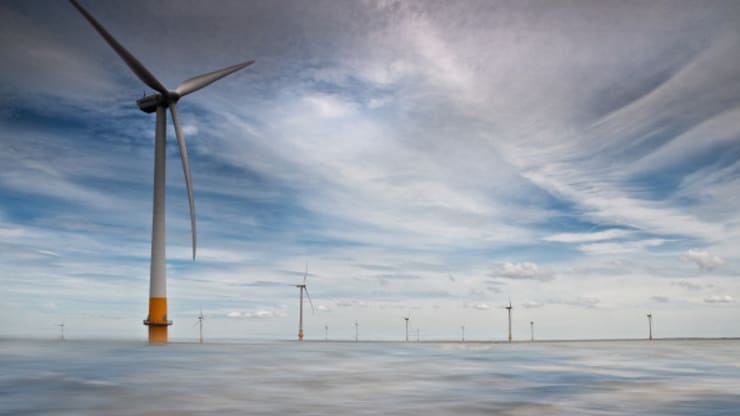Danish firm Vestas said Monday that it was aiming to produce “zero-waste” wind turbines by the year 2040.
The wind turbine manufacturer explained that its goal would mean operating a value chain that produced no waste materials.

This, it added in a statement, would be achieved through the introduction of a “circular economy approach” in the design, production, service and end-of-life parts of the value chain.
The Aarhaus-headquartered firm added that it would present its new waste-management strategy in the next two years.
“As the world’s largest supplier of wind energy, Vestas has a responsibility to eliminate waste across its value chain,” Tommy Rahbek Nielsen, who is interim chief operations officer at Vestas, said in a statement.
“Wind energy will continue to grow rapidly, therefore the time for a conservative approach is behind us,” he added.
Vestas’ aim for zero-waste wind turbines points to a significant challenge faced by the industry. For while turbines produce renewable energy, their construction does have an environmental impact.
As the wind industry develops — the International Energy Agency recently said that the offshore sector looked set to become a $1 trillion business by 2040 — it will face mounting challenges when it comes to waste.
Take a turbine’s blades. A 2017 research paper from the University of Cambridge, which was cited by Vestas on Monday, found that waste produced by wind turbine blades could hit an estimated 43.4 million tons by the year 2050. The research looked at waste produced by factors such as the manufacturing process, operation and maintenance as well as the end of a blade’s life.
Wind energy is just one of many industries aiming to reduce waste and mitigate environmental impacts. Last October, for example, consumer goods giant Unilever said it would halve its use of virgin plastic by 2025.
The business, whose brands include Dove, Ben & Jerry’s and Lipton, said it would achieve this by cutting its “absolute use of plastic packaging” by over 100,000 tons and “accelerating its use of recycled plastic.” Virgin plastics are produced using raw materials, rather than recycled ones.
The Anglo-Dutch firm also vowed to “help collect and process more plastic packaging than it sells.”
[contextly_sidebar id=”eJjRYVpAemAhbJXND8QR0O0dBkxrzO4w”]




